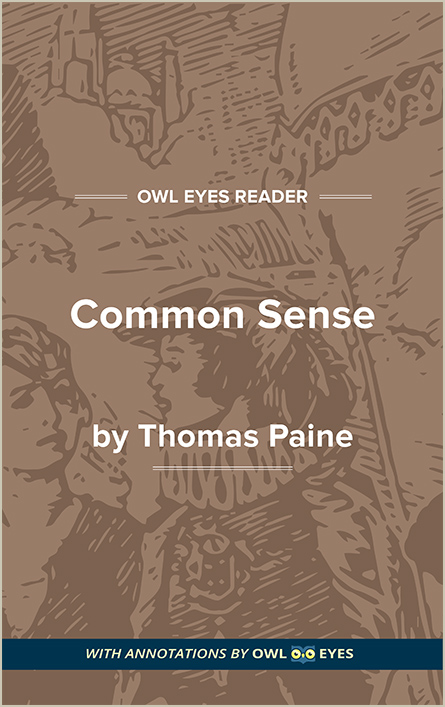Analysis Pages
Thesis in Common Sense
Thesis Examples in Common Sense:
Introduction
🔒"The cause of America is in a great measure the cause of all mankind...." See in text (Introduction)
"they have an undoubted privilege to inquire into the pretensions of both, and equally to reject the usurpation of either..." See in text (Introduction)
I. Of the Origin and Design of Government in General, with Concise Remarks on the English Constitution
🔒"the peers are an house in behalf of the king; the commons in behalf of the people; but this hath all the distinctions of a house divided against itself..." See in text (I. Of the Origin and Design of Government in General, with Concise Remarks on the English Constitution)
III. Thoughts on the Present State of American Affairs
🔒"Let the assemblies be annual, with a President only..." See in text (III. Thoughts on the Present State of American Affairs)
"Our plan is commerce..." See in text (III. Thoughts on the Present State of American Affairs)
"This new world hath been the asylum for the persecuted lovers of civil and religious liberty from every part of Europe..." See in text (III. Thoughts on the Present State of American Affairs)
"’Tis not the affair of a city, a country, a province, or a kingdom, but of a continent..." See in text (III. Thoughts on the Present State of American Affairs)
IV. Of the Present Ability of America, with Some Miscellaneous Reflections
🔒"The infant state of the Colonies, as it is called, so far from being against, is an argument in favour of independence..." See in text (IV. Of the Present Ability of America, with Some Miscellaneous Reflections)

